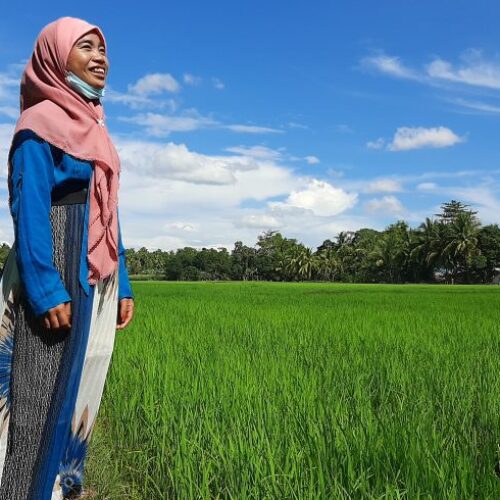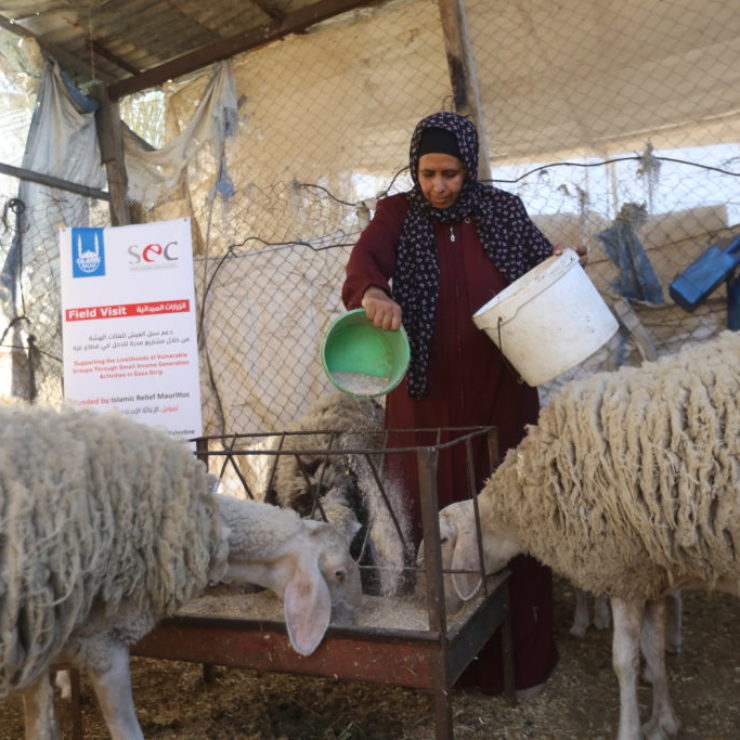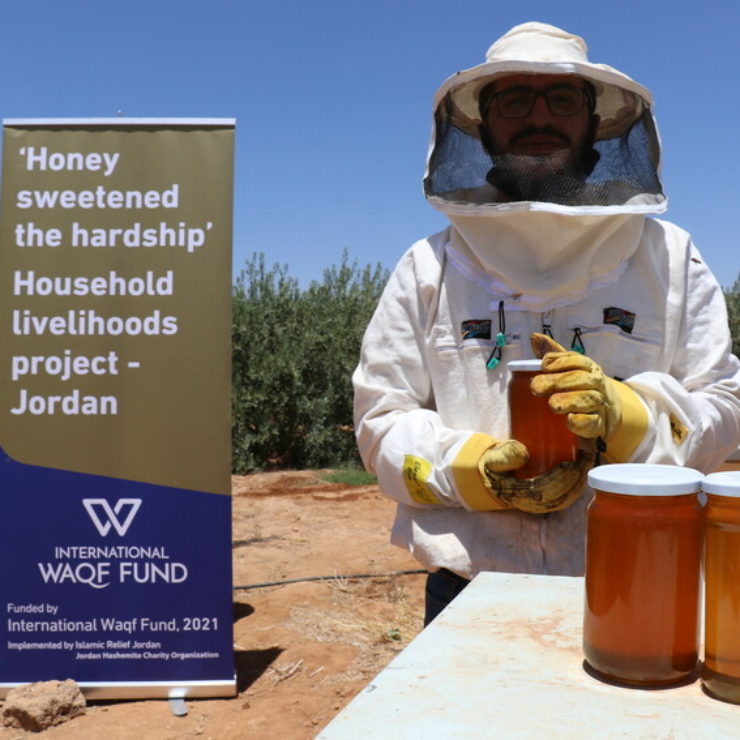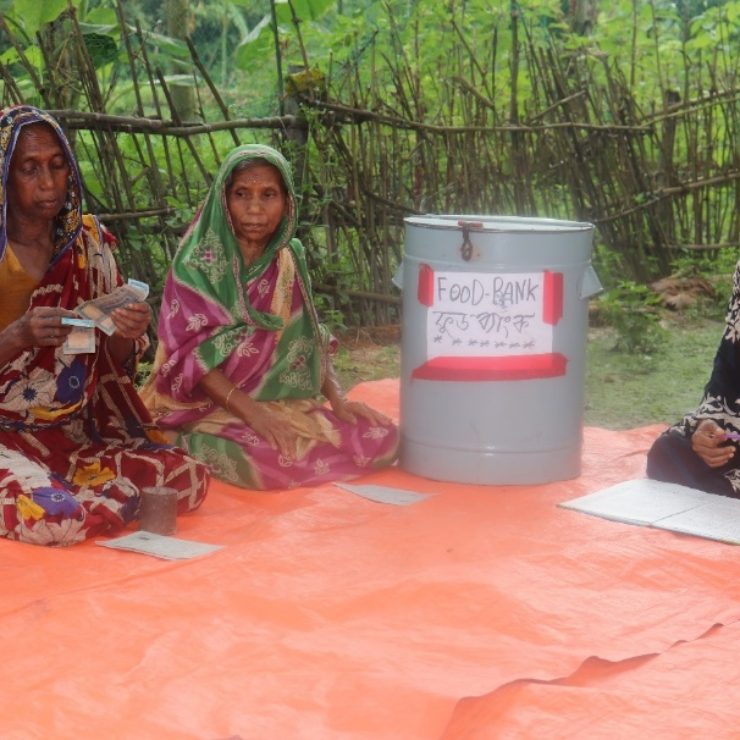Tackling violence and abuse in Bangladesh
Tackling violence and Abuse in Bangladesh
Shumoti now earns a living rearing goats, thanks to training and support from Islamic Relief and a community group set up by one of our livelihoods projects.
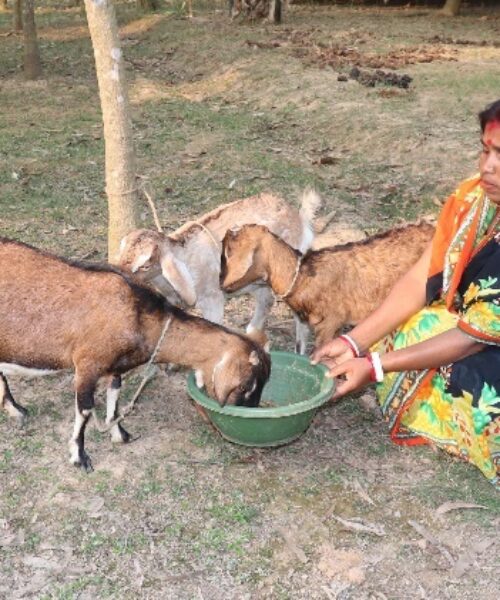
“I was extremely happy when my son, Tuhin, was born. However, my husband, parents-in-law and other relatives started mistreating me and calling me ‘unlucky’. Since then, life has been very miserable,” says Shumoti from Dinajpur, Bangladesh, describing how her life changed when she gave birth to a child with disabilities. “I had no choice but to leave my son tied up with a rope so that I could work. Every day I returned home, I found bruises all over his body. Seeing his suffering, I could not stop my tears.”
Then Shumoti joined a women’s support group run by Islamic Relief as part of our efforts to protect human rights and ensure better services for ethnic minorities and vulnerable people. She learned about her rights and how to access support around gender-based violence. Islamic Relief also helped her to access government support which has provided Tuhin – now 13 years old – with a wheelchair, boosting his independence.
“When they told me the news of my upcoming wedding, I was shocked and started to cry. I didn’t know what to say,” says Norhata, who lives in Maguindanao, the Philippines.
“Without my consent, I was married when I was 14. My husband was a widower who already had seven children that I was expected to care for,” she adds, explaining that she dropped out of school and was pregnant with her first daughter within three years. However, she did not give up on her dream of finishing her studies.
“I told myself that if I can get an education, I can change my daughter’s life. She can also go to school. I want to be a role model for her,” says Norhata, who became even more determined after taking part in an Islamic Relief project.
“As I gained dress-making skills, I also learned about women’s rights and empowerment through gender sessions conducted by Islamic Relief. I have become stronger because of all the knowledge I have gained. Islamic Relief has supported me enormously in this. I now know that child marriage is a violation of girls’ rights.”
Despite the obstacles in her way, courageous Norhata continued her education and was offered a place on a vocational course. Run by Islamic Relief and the Swedish International Development Cooperation Agency (Sida), the course gave her a dressmaking starter kit, which included materials and a sewing machine. Norhata was then taught how to produce clothes to sell, going on to become one of 166 students to graduate through the project.
“My life has completely changed. I am now a nationally certified dressmaker and have developed more self-esteem and confidence. We’ve shown girls and women in our community that they don’t have to limit themselves. I am proud that I can contribute in this way by showing the importance of education and the need to end child marriage.”
